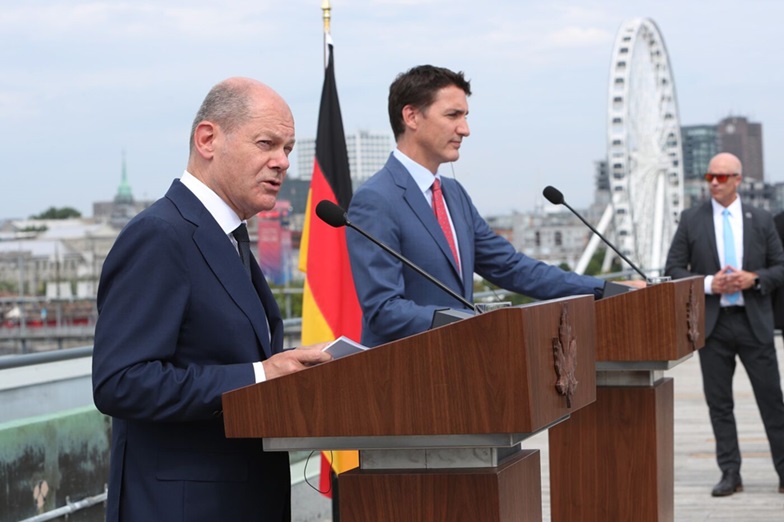In a strategic move aimed at reducing reliance on Russian energy, Canada and Germany have signed an agreement to expedite the commercial-scale trade of clean hydrogen fuel. The memorandum of understanding, inked on Monday, commits the two nations to support transactions between Canadian hydrogen producers and Germany’s industrial manufacturing and energy distribution sectors.
“Canada is working with European allies to displace imports of Russian oil and gas and fight climate change with clean Canadian hydrogen. Canada can be a world-leading producer and exporter of clean hydrogen,” the federal natural resources ministry stated.
Hydrogen is a zero-carbon fuel particularly suited for powering large industrial machines, heavy vehicles, and heating. Germany launched the H2-Global project in 2021 to create a hydrogen economy, utilizing a “double auction” model in which the government buys the green fuel from producers and sells it to industrial consumers at a lower cost.
The latest agreement expands this model to include the Canadian government’s willingness to help subsidize any losses, although the specific amount was not disclosed. Berlin had previously announced plans to allocate up to 3.53 billion euros ($3.84 billion) of public funds from 2027 to 2036 to procure green hydrogen and its derivatives, aiming to bridge the gap between supply and demand prices.
“Although some challenges remain, we believe a common H2-Global financing window can play an important role in closing the remaining pricing gap,” Economy Minister Robert Habeck said in a statement.
The agreement builds on the commitment made by Canadian Prime Minister Justin Trudeau and German Chancellor Olaf Scholz in August 2022 to establish a transatlantic supply corridor and coordinate policies to attract investments in hydrogen projects, with Canadian exports to Germany expected to begin in 2025.
Canada has announced more than 80 low-carbon hydrogen production projects to date. However, delays have been encountered, with one of the first projects postponed by a year as European customers needed additional time to develop specialized infrastructure for handling the product.
The agreement between Canada and Germany reflects a broader trend among European nations to reduce dependence on Russian energy sources, highlighting the increasing importance of clean hydrogen as a strategic alternative.
(Source: H2 View | CBC | Bloomberg)









